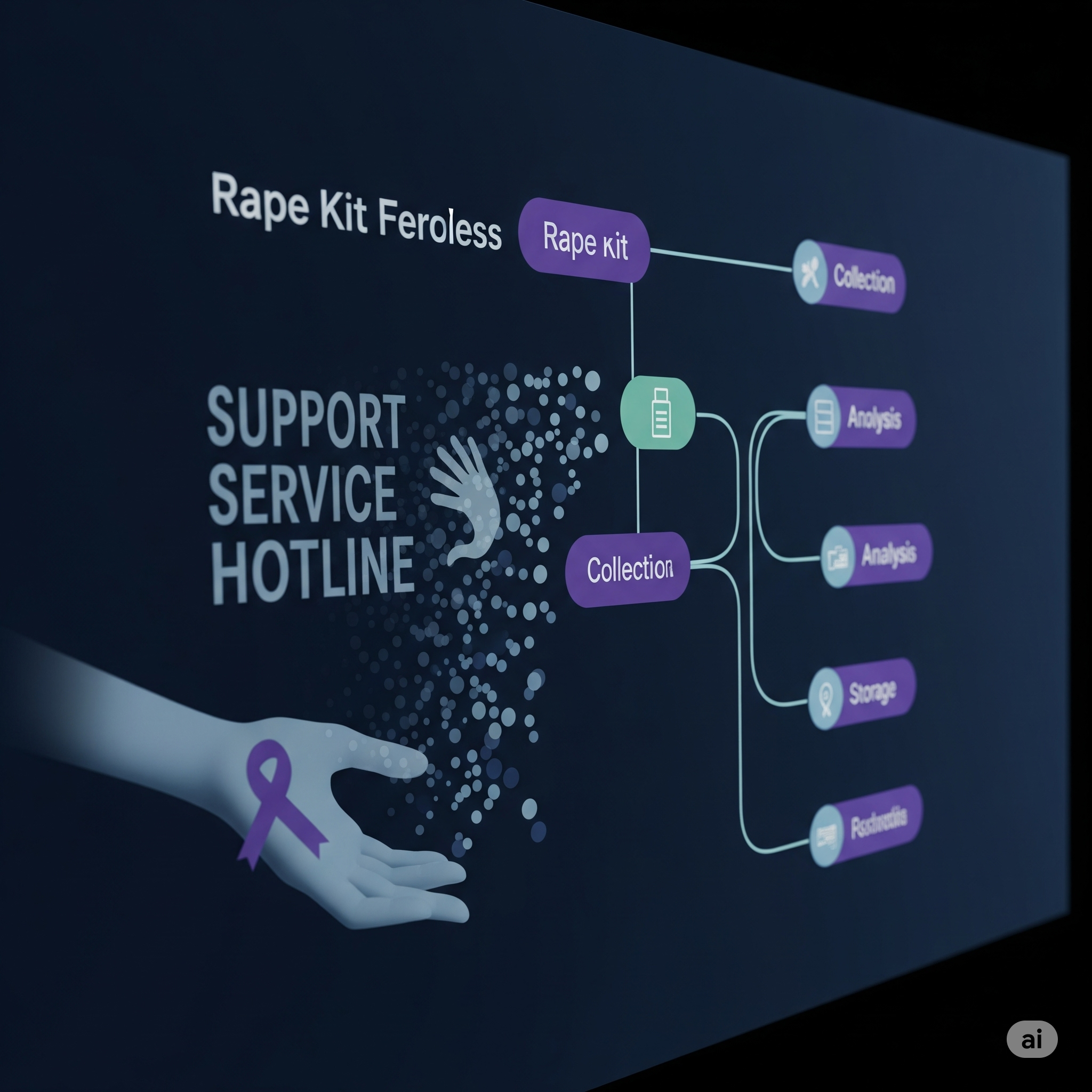More States Track Rape Kits, But Vital Survivor Support Faces New Threats
A growing number of U.S. states are implementing systems to track rape kits, improving transparency in sexual assault investigations.

Tracking Rape Kits and Supporting Survivors: Balancing Forensic Progress with Holistic Care
A growing number of U.S. states are implementing advanced systems to track the status of rape kits, marking a significant step toward accountability and transparency in the justice system. While these digital platforms give survivors crucial information about their cases and help prevent long-standing backlogs, there is a worrisome trend of diminishing support services that survivors rely on for healing and navigating legal processes.
The Rise of Rape Kit Tracking Systems
- Platforms allow survivors and law enforcement to monitor kits from collection through laboratory analysis and into prosecution
- Transparency in the chain of custody reduces the risk of untested kits piling up for years
- Survivors gain a sense of control and reassurance that their invasive examination contributes to seeking justice
- Labs and law enforcement agencies are held accountable for timely processing and clear communication
The Critical Role of Survivor Support Services
Enhanced forensic tracking is only one part of a survivor’s journey. Equally important are the services that address emotional, psychological, and legal needs:
- Trauma-informed counseling to help survivors process the emotional impact of assault and the forensic exam
- Victim advocacy programs offering case management, court accompaniment, and resource referrals
- Legal aid services guiding survivors through restraining orders, civil suits, and criminal proceedings
- Support groups and peer networks that provide community and shared healing experiences
- Medical follow-up and referrals for ongoing health concerns, including sexual and reproductive health
A Troubling Paradox: Progress Amidst Service Erosion
- Funding cuts and resource constraints threaten the availability of counseling and advocacy programs
- Some jurisdictions focus on forensic investments while scaling back comprehensive survivor care
- Survivors may feel re-traumatized if they lack support after forensic evidence is collected and analyzed
- Effective tracking loses impact if survivors disengage from the justice process due to unmet support needs
Holistic Approaches to Survivor Well-Being
- Integrate forensic and support services under one coordinated framework
- Co-locate evidence collection sites with victim service providers
- Ensure immediate referrals to counseling and advocacy upon kit submission
- Secure sustainable funding for comprehensive survivor care
- Advocate for legislative budgets that balance forensic costs with support program investments
- Partner with nonprofit organizations to extend service reach and capacity
- Enhance survivor choice and agency
- Offer anonymous and confidential reporting options
- Provide clear information about available services at each stage of the process
- Monitor outcomes and service quality
- Track not only kit processing metrics but also survivor satisfaction and healing indicators
- Conduct regular stakeholder reviews to identify gaps and improve coordination
Moving Forward: Ensuring True Accountability
While rape kit tracking systems represent essential progress, they must be matched by robust support for survivors. Policymakers, law enforcement, and service providers should:
- Commit to balanced resource allocation that sustains both forensic and aftercare services
- Foster partnerships between criminal justice agencies and community organizations
- Center survivor voices in program design and evaluation
- Promote public awareness campaigns highlighting both tracking transparency and the availability of holistic support
Conclusion
Accountability in sexual assault cases starts with effective evidence management but must continue through comprehensive survivor care. By integrating transparent tracking systems with sustained support services, states can ensure that a rape kit represents not just a piece of forensic evidence but a meaningful step toward justice and healing for every survivor.
